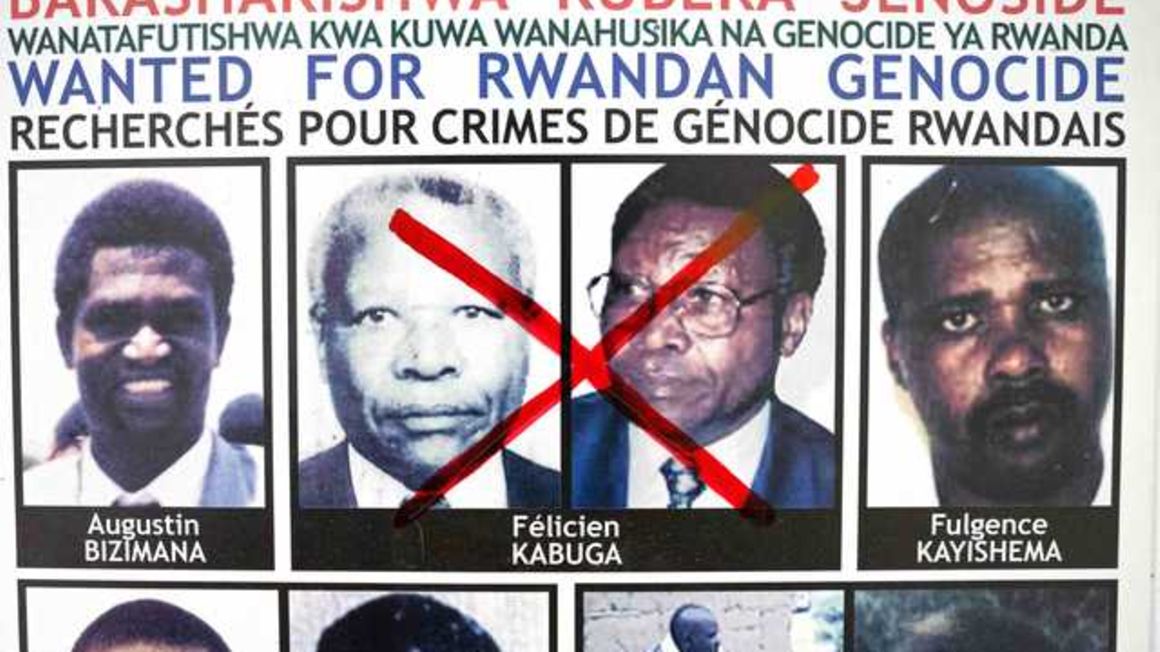SATURDAY MAY 21 2022

The only genocide fugitive nabbed by the UN Mechanism since its inception in 2010 is Felicien Kabuga, arrested in France in May 2020. PHOTO | AFP
Summary
The Democratic Republic of Congo (DRC) and Uganda currently host the biggest number of wanted fugitives, 408 and 277 respectively as of May 19, 2022, according to figures by Rwanda Prosecution Authority (RPA). Tanzania hosts 52, Kenya 35 and Burundi 16.
This is despite these countries, with the exception of Kenya, being signatories to the UN Convention on the Prevention and Punishment of the Crime of Genocide, which obliges states to extradite Genocide suspects for trial to Rwanda or prosecute them in their own courts.
 By BERNA NAMATA
By BERNA NAMATAMore by this Author
East Africa remains a haven for fugitives accused of committing the Genocide Against the Tutsi almost 28 years after the massacres, with the region hosting 785 fugitives of the 1,147 wanted criminals.
The Democratic Republic of Congo (DRC) and Uganda currently host the biggest number of wanted fugitives, 408 and 277 respectively as of May 19, 2022, according to figures by Rwanda Prosecution Authority (RPA). Tanzania hosts 52, Kenya 35 and Burundi 16.
This is despite these countries, with the exception of Kenya, being signatories to the UN Convention on the Prevention and Punishment of the Crime of Genocide, which obliges states to extradite Genocide suspects for trial to Rwanda or prosecute them in their own courts.
Article 3 of the UN resolution (S/RES/2950) 2014 urges states to “investigate, arrest, prosecute or extradite in accordance with applicable international obligations, all other fugitives accused of Genocide residing on their territories, including those who are FDLR leaders.”
So far, only 28 genocide fugitives have been extradited to Rwanda, with the majority coming from America — six. DRC and the Netherlands have extradited four each, Uganda three and Congo Brazzaville and Malawi one each.
Rwandan prosecutors say they face many challenges but working with countries, especially lack of political will and tricks by fugitives to avoid arrest and extradition, including alleging they are being sought for political persecution.
“We still have challenges, like fugitives changing identities, nationality, residential addresses, false claims related to their death. Also, sometimes we don’t have adequate information related to the whereabouts of the fugitives,” Faustin Nkusi, Spokesperson of Rwanda Prosecution Authority, told The EastAfrican.
While Western countries such as Belgium, Switzerland, Canada, Finland, Norway, France, Sweden, Germany and the Netherlands have so far prosecuted 24 Genocide suspects in their countries, no African country has prosecuted any.
There is concern that some fugitives successfully evade justice till their death, as some key witnesses may also have died or forgotten details of the cases.
Serge Brammertz, prosecutor of the IRMCT, maintains that the lack of cooperation, particularly in East and Southern Africa, remains a challenge despite his office providing evidence of some fugitives’ whereabouts.
Last year, Brammertz told the UN that his office still faced “immense challenges over the last three years in obtaining cooperation,” citing South Africa's failure to arrest Fulgence Kayishema, one the most wanted fugitives.
“Relying on records and sources, my office concluded in early 2018 that Kayishema was living in Cape Town, South Africa. This was confirmed by South Africa via Interpol in August 2018.”




No comments:
Post a Comment